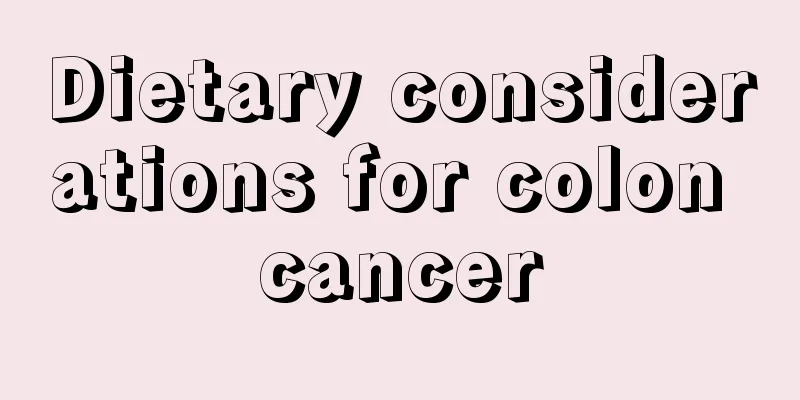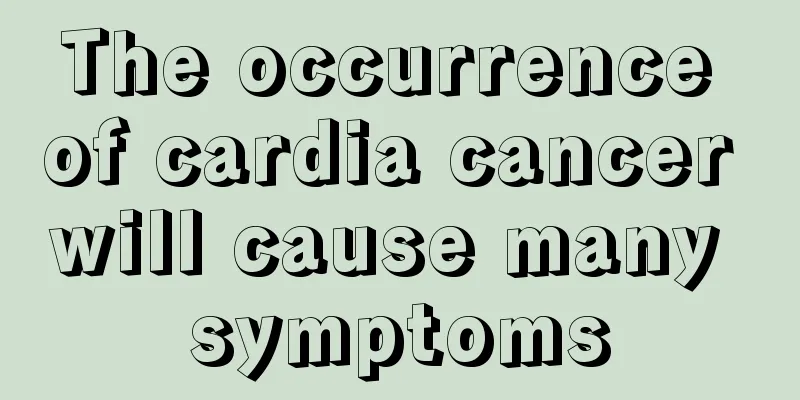Dietary considerations for colon cancer

|
The intestine is the only way for food to pass through, so diet has a great relationship with the occurrence of colon cancer. In addition, the various nutrients rich in food are the basis for enhancing the body's disease resistance, and can also play a certain inhibitory role on external cancer-promoting factors and prevent the occurrence of diseases. Therefore, mastering a scientific diet is the best way to treat colon cancer. The diet for colon cancer should reasonably match sugar, fat, protein, minerals and vitamins. Every day, you should have cereals, lean meat, fish, eggs, milk, various vegetables and bean products, but not too much of each, so as to supplement the various nutrients needed by the body. 1. Foods such as pickles and bacon contain nitrite, a carcinogen, and should be eaten less. 2. Don’t eat too much meat because meat is high in fat. You can eat more fish and shrimp to meet the body’s protein needs. 3. Eat more foods rich in fiber, such as celery, leeks, fresh dates, sweet potatoes, etc.; don’t buy stale or rotten vegetables and fruits for the sake of cheapness. 4. Eat more starchy foods, such as cereals, beans, and plant root foods, and the less processed the better, because the starch in the food can prevent colon cancer and rectal cancer. 5. Eat more fresh vegetables and fruits containing various vitamins. Foods rich in fiber, such as asparagus, celery, leeks, cabbage, radish and other green leafy vegetables, can stimulate intestinal peristalsis, increase the frequency of bowel movements, and remove carcinogenic and toxic substances from the feces. 6. Moldy rice, noodles, peanuts and other foods contain carcinogenic aflatoxin. Once discovered, they should be discarded and not eaten. Wash the rice thoroughly before cooking rice or porridge to reduce the damage of mold to the body. Warm reminder: Common anticancer drugs can cause digestive tract reactions, which are mainly related to the anticancer drugs stimulating and damaging the digestive tract mucosa. Therefore, during chemotherapy for colon cancer, patients should be given light and easily digestible food according to their taste, and small and frequent meals are encouraged. Especially during the intervals of chemotherapy, more attention should be paid to supplementing high-calorie, high-vitamin, high-protein, low-fat foods to ensure nutritional needs. |
<<: Diet therapy for children's colon cancer
>>: Drinking yogurt after colon cancer surgery can speed up recovery
Recommend
What to do with breast fibroids in an 18-year-old girl
Breast fibroids in 18-year-old girls are usually ...
Methods of digital rectal examination for prostate cancer What are the examination items for prostate cancer
Prostate cancer is very harmful to men. This dise...
6 eyebrow shapes to show your health condition
Dull eyebrows If the tips of the eyebrows are str...
What are the dietary precautions for lung cancer
A scientific and reasonable diet is indispensable...
What are the benefits of abdominal breathing
Many people may not have heard of what abdominal ...
How to control oily scalp
To prevent oily scalp, the most effective way is ...
What are the methods for detecting Helicobacter pylori
At present, in the gastroenterology department of...
What to do if lung cancer metastasizes to the pericardium and lymph nodes
What should I do if lung cancer metastasizes to t...
What are the symptoms before death from advanced lung cancer? Six major symptoms before death from advanced lung cancer
Lung cancer has the highest mortality rate among ...
Diagnostic knowledge you need to know before treatment of malignant lymphoma
Malignant lymphoma is a malignant tumor that orig...
What are the benefits of male fluids for women?
When a couple has sex, if no contraceptive measur...
How to prevent esophageal cancer after giving birth
Postpartum women are at their weakest. Their resi...
What are the emergency treatments for acute pulpitis?
If you do not develop good oral hygiene habits, y...
How to take care of calcified thyroid nodules
The thyroid gland is a very important endocrine g...
What are the early symptoms of liver cancer? Three major symptoms suggest that liver cancer is still in the early stages
Liver cancer is a very serious disease. Once infe...









